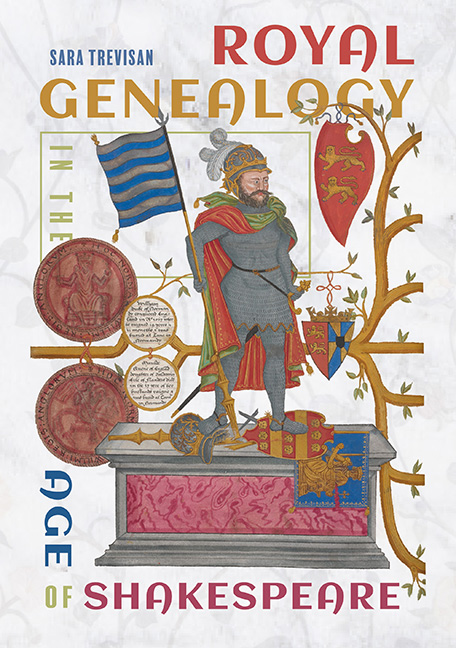Summary
Throughout the medieval and much of the early modern period, a dynasty was conceived as a community embracing not only living family members but also ancestors and descendants. Immortalised and visualised in family pedigrees, these past, present and future generations were held together by the principle of heredity. This was magnified in royal dynasties, where monarchs were conceptualised as heirs to their ancestors through an inheritance of blood, but also through qualities and deeds. Royal genealogies sought to convey the idea of a ‘real’ kinship, by which the virtues of nobility were transmitted between generations; the members of a noble lineage were related through blood ties to the forebears they were urged to emulate and to whom they were compared.
Since the late fifteenth century, blood had been identified as the substance which transmitted physical and moral traits across generations. Nobility and virtue were traits passed on ‘naturally’ through the blood running within the enclosed genealogy of a noble family. The numerous debates on the transmission of blood, nobility and virtue are summarised in Hieronimus Osorius's De Nobilitate Civile, et De Nobilitate Christiana (1542) translated into English by William Blandie as The Five Books of the Famous […] Hieronimus Osorius (1576). In this book, which Elizabeth I and Lord Burghley both owned, Blandie wrote that ‘virtue is not obtained so much by study and industry, as gotten by nature and by the good blood of Noble Parentage’; true nobility was simply ‘the glorious spark of virtue ingraffed in some Noble and renowned family’. Ancient families deserved greater civic honour as they had perpetuated for longer the virtue ‘ingraffed’ in their stock. Osorius and Blandie sought to adjust the moral and political ideals of classical antiquity, rooted in the acquisition of virtue by active imitation, to the genealogical mind-set and ideals of sixteenth-century European dynasties.
This emphasis on blood was, however, not absolute, since, as Osorius and Blandie also observed, human institutions, including bloodlines, were ‘frail, mutable, and much subject to alteration’; not even nobility was bound to continue forever.
- Type
- Chapter
- Information
- Royal Genealogy in the Age of Shakespeare , pp. 27 - 66Publisher: Boydell & BrewerPrint publication year: 2020

